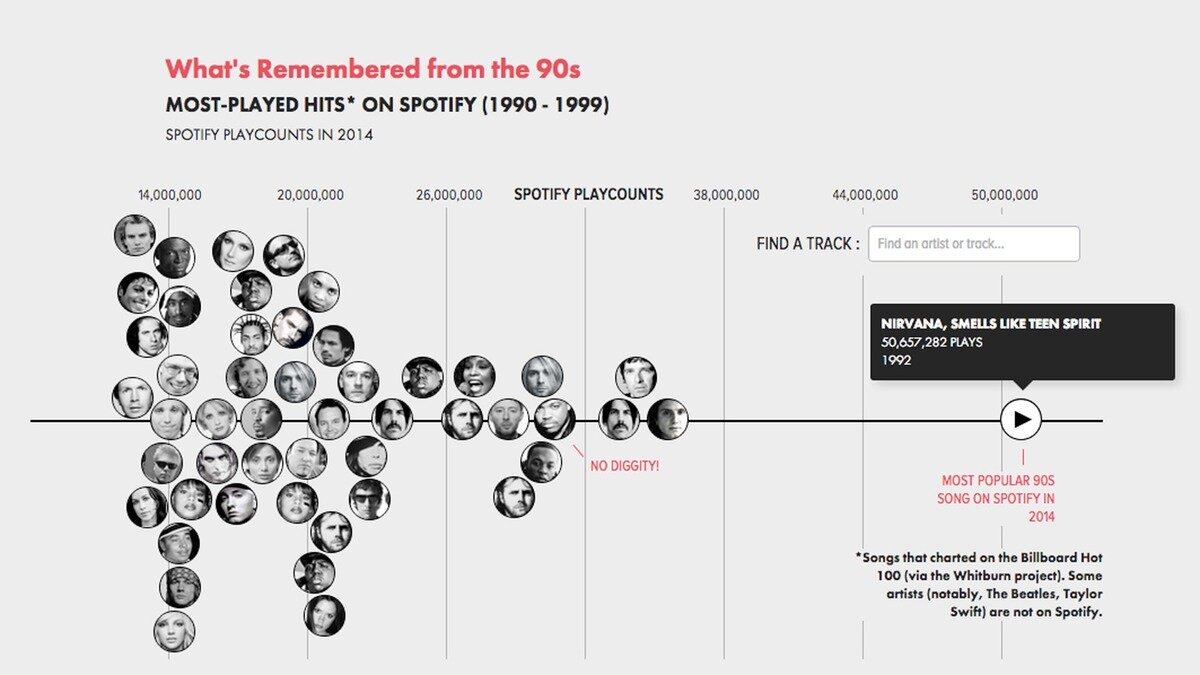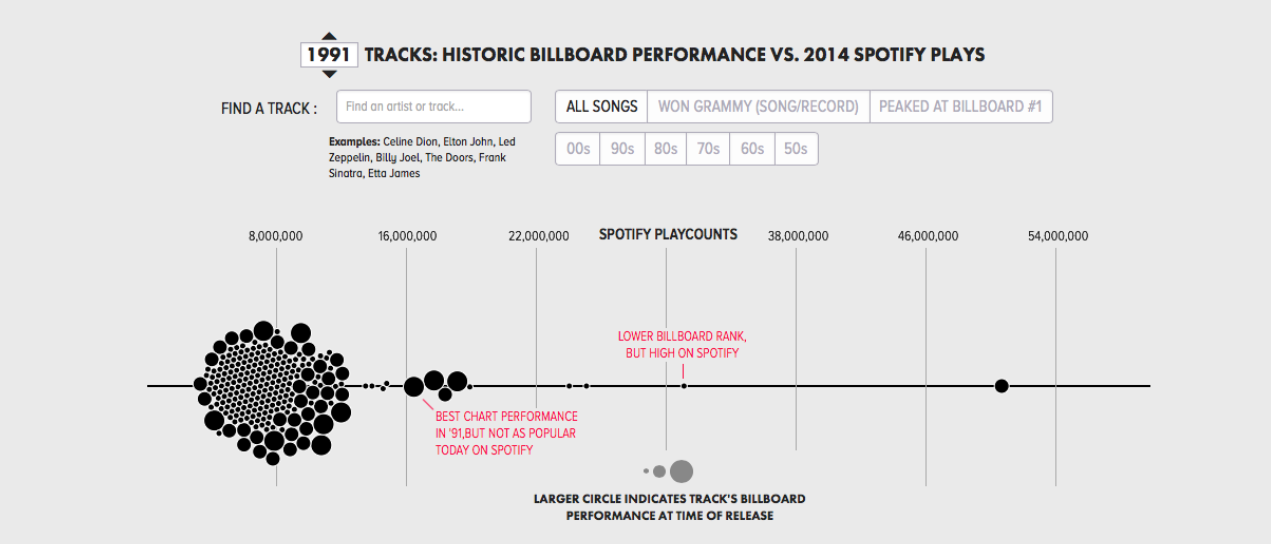How Spotify can measure the popularity of older music
We often hear people classify popular songs (take for example “Jumpin’ Jack Flash by The Rolling Stones) as “timeless,” referring to the song’s widespread appeal at the time of its release. But how is it that songs from the past are deemed timeless in the present, when there has been no definite way to measure the popularity of a song over a time span. Fortunately, we now have Spotify, which in addition to streaming music online, can collect data from a song’s playtime and measure the appeal of older music in today’s world.
Although this sounds like a major game changer, Matt Daniels explains in a recent Polygraph article titled “The Most Timeless Songs of All-Time” that just because a song is popular in the past does not mean it will be coveted in the present, and vice versa. For instance, Spotify indicates that “for the entire 1980s, Don’t Stop Believin’ is the most-played song on Spotify [yet] this song barely charted on Billboard” (Daniels). This can result in opinionated dissonance, since certain older songs that were never classified by popular opinion as timeless may now be deemed as classics by the current vast majority.
“just because a song is popular in the past does not mean it will be coveted in the present, and vice versa.”
With the emergence of this data-collecting feature comes potential turmoil, leaving me with one question I would like to ask: should we classify songs as timeless based on the past opinions generated during the times in which songs were released, or based on what the current population has to say?
See more blog articles >

